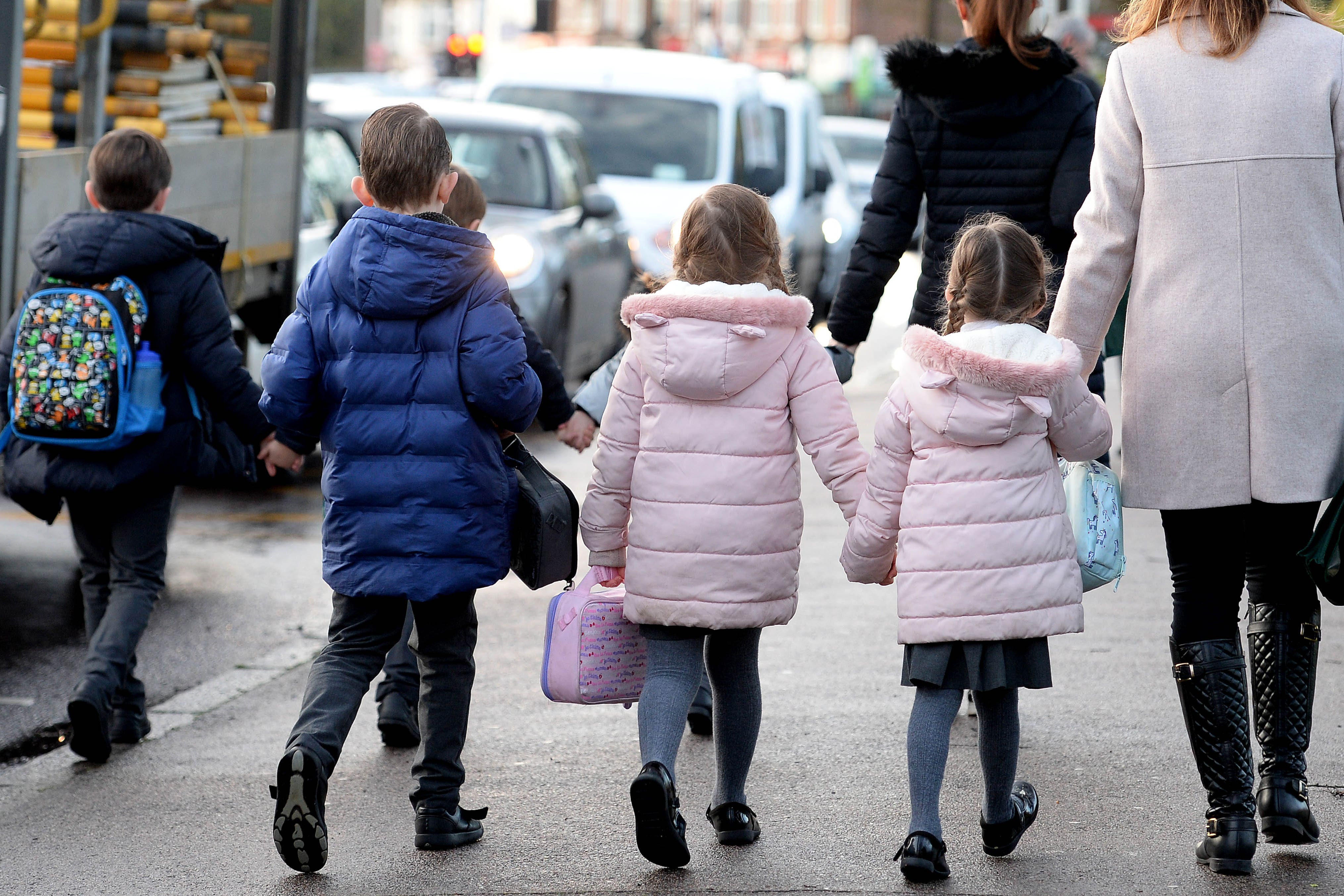Watchdog fears some parents have ‘lost sight’ of need for school attendance
School closures amid the pandemic broke down the structure and routine of ‘getting children up and to school every day’, Ofsted said.

Your support helps us to tell the story
From reproductive rights to climate change to Big Tech, The Independent is on the ground when the story is developing. Whether it's investigating the financials of Elon Musk's pro-Trump PAC or producing our latest documentary, 'The A Word', which shines a light on the American women fighting for reproductive rights, we know how important it is to parse out the facts from the messaging.
At such a critical moment in US history, we need reporters on the ground. Your donation allows us to keep sending journalists to speak to both sides of the story.
The Independent is trusted by Americans across the entire political spectrum. And unlike many other quality news outlets, we choose not to lock Americans out of our reporting and analysis with paywalls. We believe quality journalism should be available to everyone, paid for by those who can afford it.
Your support makes all the difference.Pupil attendance is running “persistently” lower than before the pandemic after lockdowns broke the “clear social contract” on children going to school daily, an education leader has said.
Ofsted Chief Inspector Amanda Spielman described ongoing school absences as a “deep and concerning problem”.
School closures amid the pandemic broke down the structure and routine of “getting children up and to school every day”, she said, as she warned that a minority of families appear to have “lost sight” of the expectation that children should be sent out every morning to be educated in person.
Speaking during a media briefing as she launched Ofsted’s annual report, she said: “I think this is a deep and concerning problem. For many years, I think there’s been a very clear social contract.
“On the one side, the clear expectation is that parents should get their children to school every day, unless the child is too ill to go to school. And in return schools will do everything they can to give the child a good education and to prepare them really well for their futures, for their adult life.
“The pandemic disruption, and the expectation that children should be kept at home, broke that. So for significant periods children were educated as best they could be remotely. And that broke down that structure, that routine of getting children up and to school every day.
“We know how many children didn’t take up the places that were available (to attend school during lockdowns) for disadvantaged children, for example. And coming back post-pandemic, for a minority of families they’ve just sort of lost sight of the importance of that consistency of getting children to school every day – that it’s not an optional thing. It’s not a ‘when you feel like it, and not when you don’t’.
“Schools can’t be expected to provide education remotely if the parent feels that they would prefer to keep the child at home more of the time.”
For a minority of families, that expectation of consistent attendance has broken down
She said the schools inspectorate has seen attendance “running persistently somewhat lower than pre-pandemic, over and above anything that could be attributed to illness”.
She added: “For a minority of families, that expectation of consistent attendance has broken down. Schools are working really hard to re-establish that. I know that immense amounts of work are going into helping families and children.”
The Ofsted report stated: “It is vital that all parents commit to full attendance for their children.”
The report also said the pandemic had obscured trends in exclusions and off-rolling – removing children from a school register without the due process of a formal exclusion – meaning it is more difficult to tell if off-rolling remains a problem.
But Ofsted said it has anecdotal evidence that part-time timetables are being used more regularly in schools, perhaps as an alternative to exclusion.
The watchdog warned that this could be another way in which children “can slowly slide out of education”.
Ms Spielman said behavioural challenges in children who have returned to school after the pandemic and whose social development might have been affected could be a factor in the use of part-time timetables.
“Where these are used appropriately, on a finite short-term basis to handle a crisis or re-integrating a child, it can make absolute sense,” she said.
“The difficulty is when they become a permanent or semi-permanent arrangement because obviously, at that point, a child is progressively losing more and more of their education, sliding out of education. It becomes less and less likely that they can ever re-integrate with their peer group.
“If a child has the kind of needs that cannot be met in a mainstream school that has done all the things that it properly can and should do then that child needs early assessment for specialist provision.”